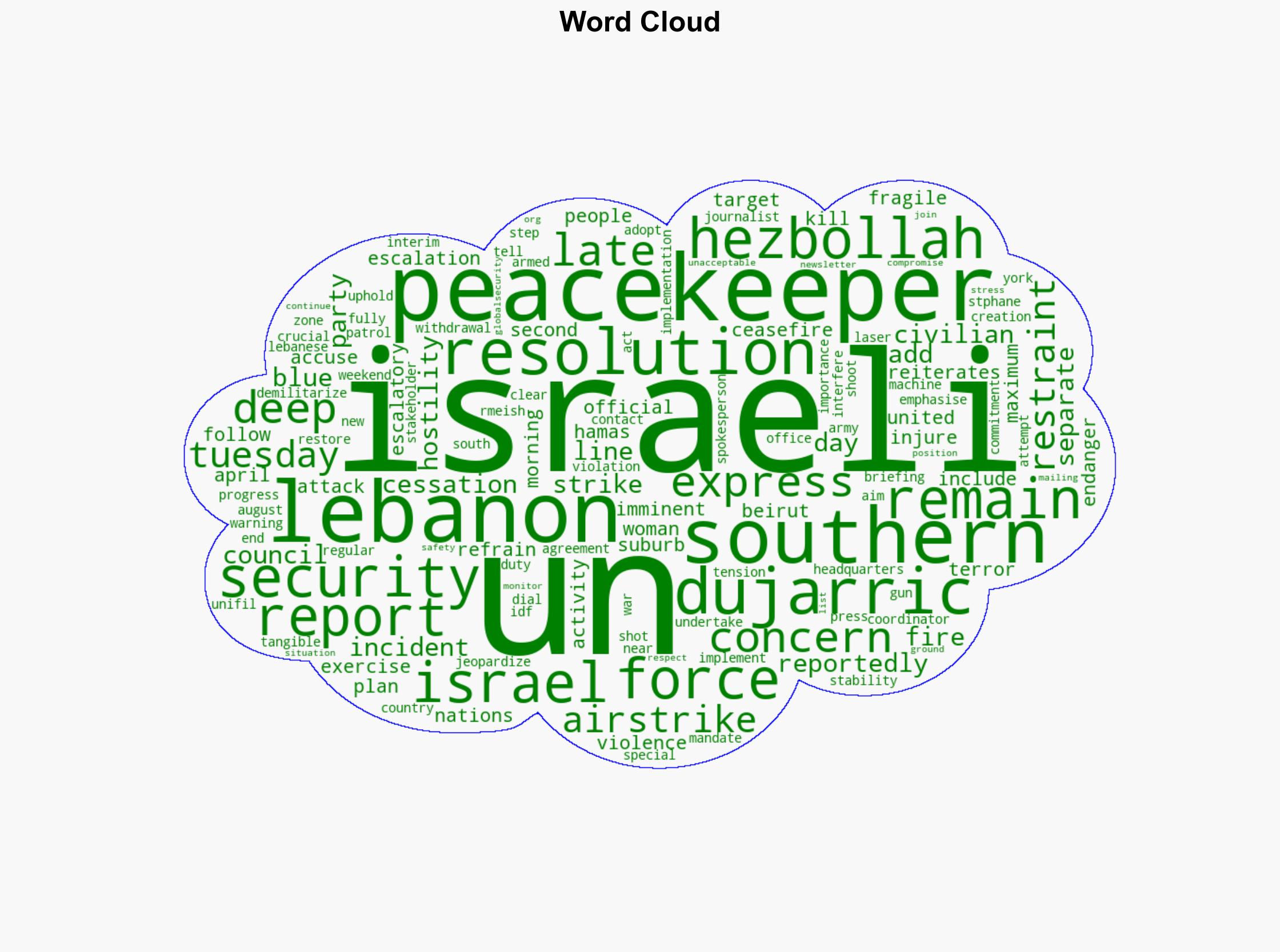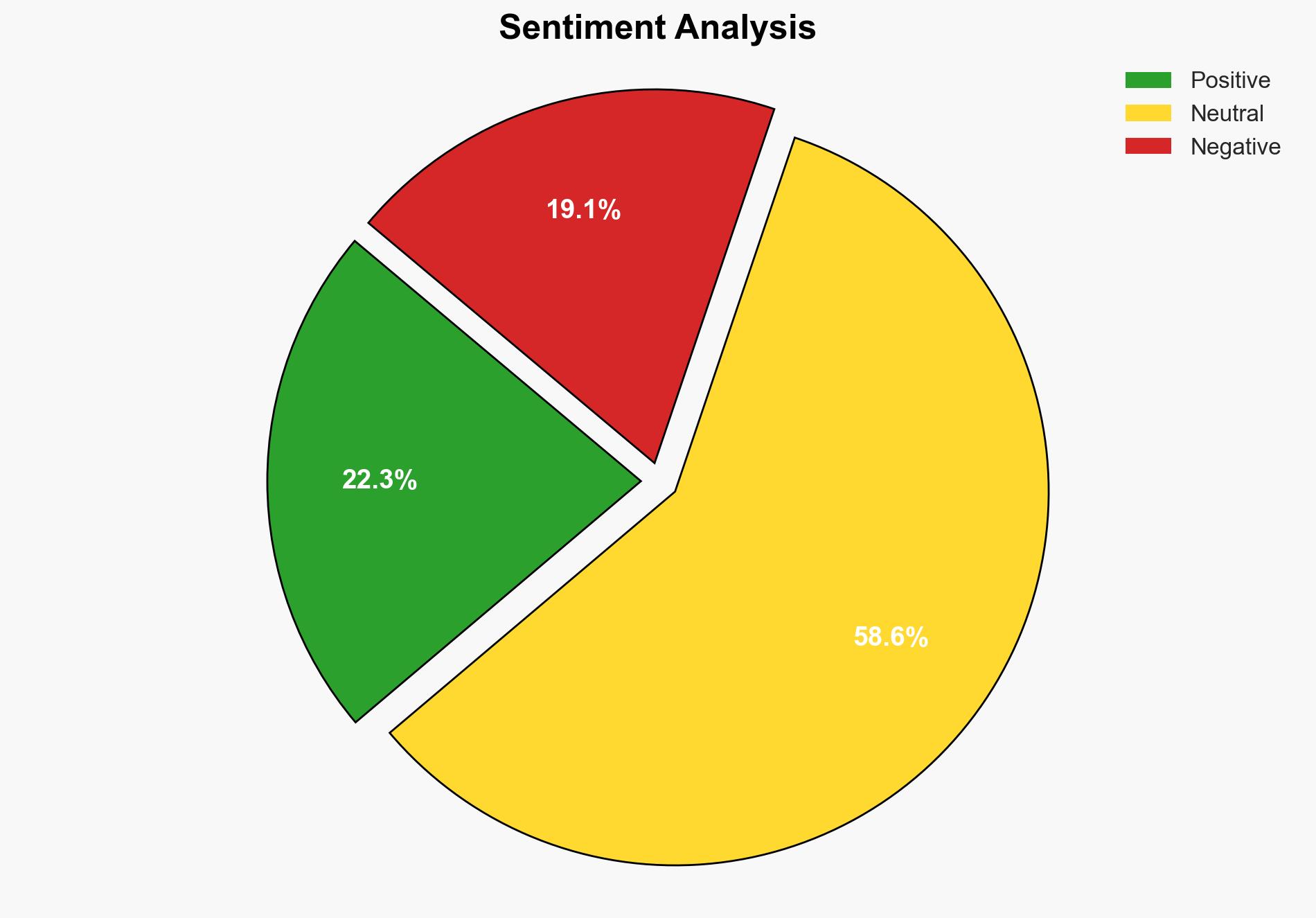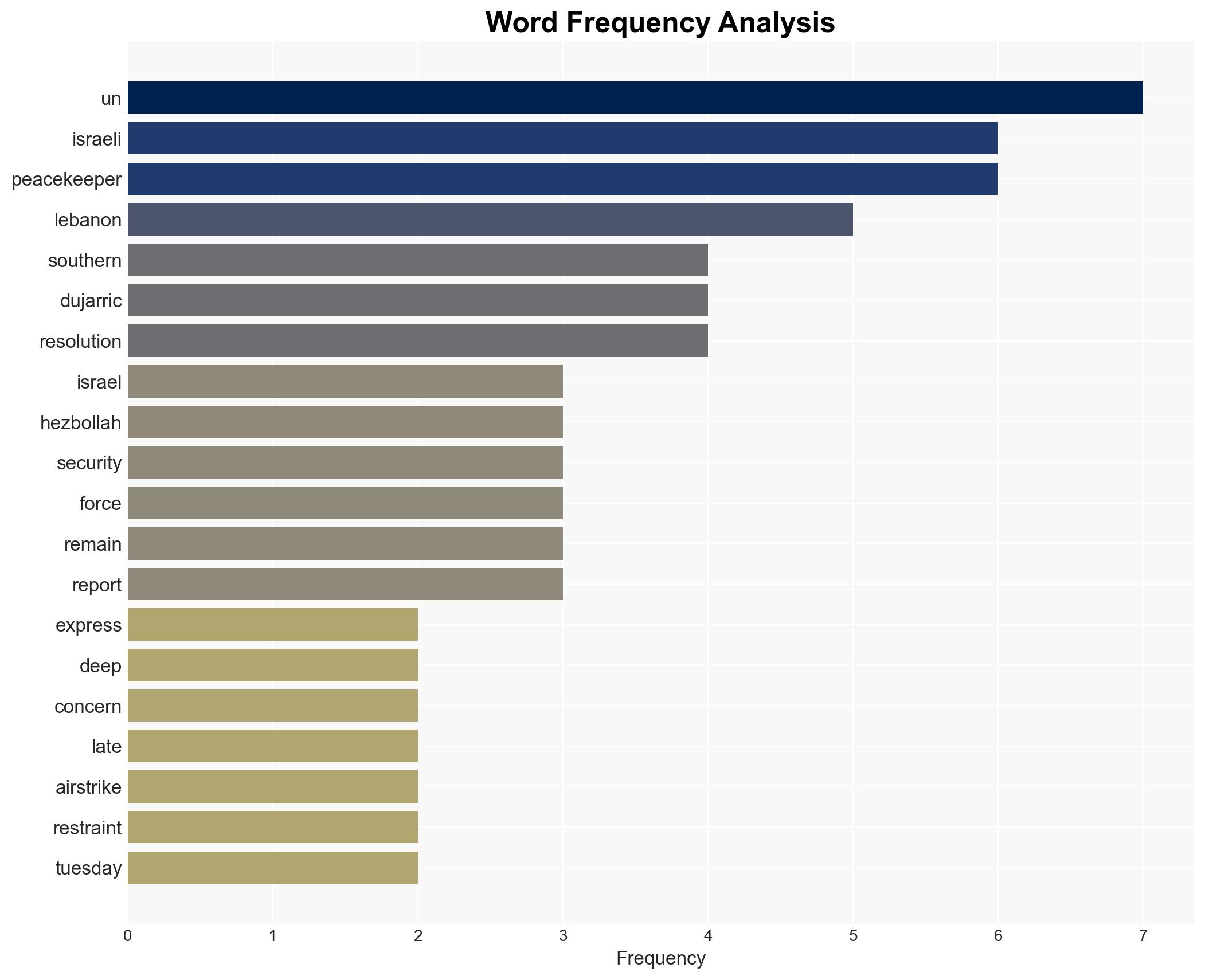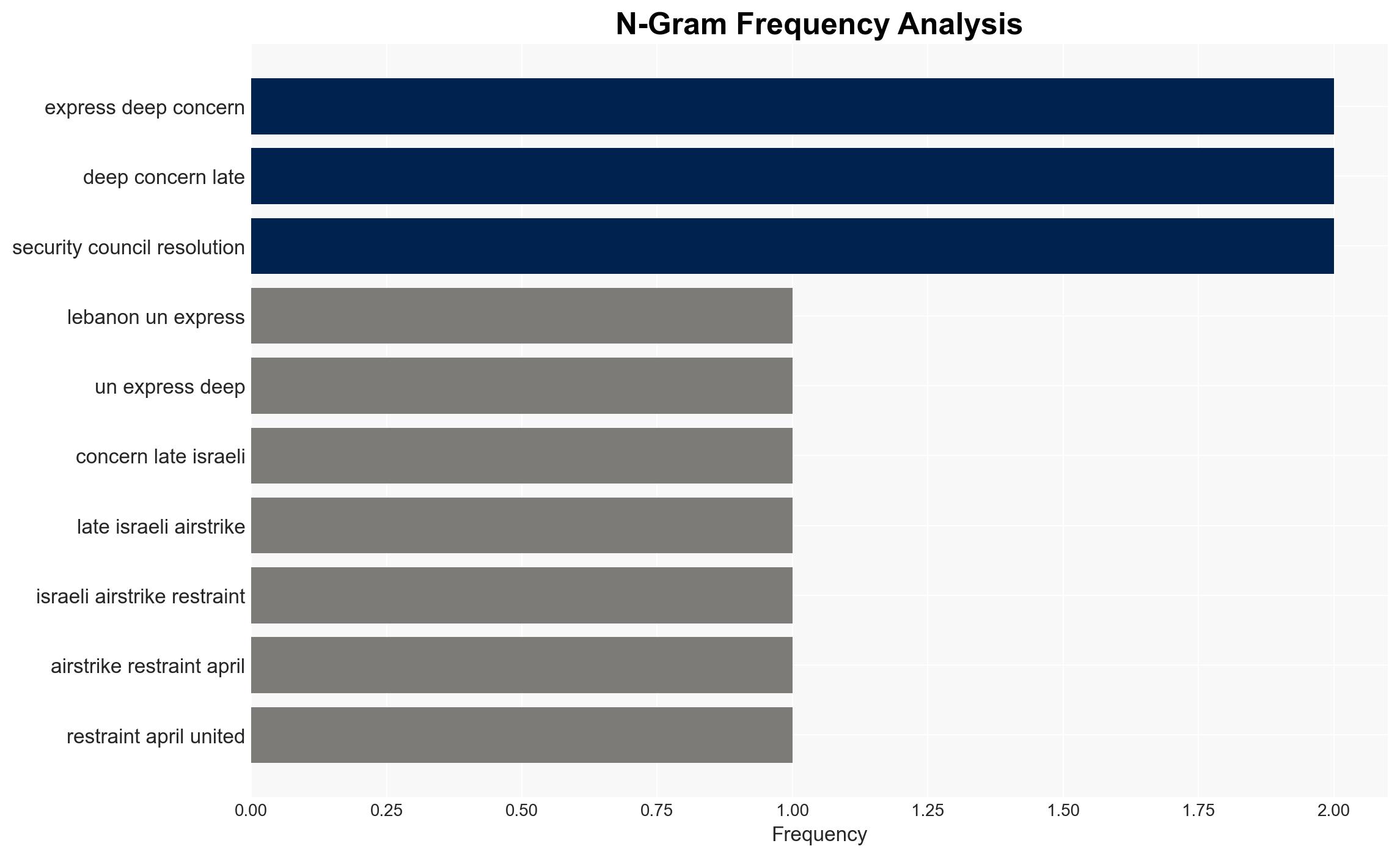Lebanon UN expresses deep concern over latest Israeli airstrikes in call for restraint – Globalsecurity.org
Published on: 2025-04-02
Intelligence Report: Lebanon UN expresses deep concern over latest Israeli airstrikes in call for restraint – Globalsecurity.org
1. BLUF (Bottom Line Up Front)
The United Nations has expressed deep concern over recent Israeli airstrikes in Lebanon, which have escalated tensions and threatened the fragile ceasefire between Israel and Hezbollah. The strikes reportedly targeted Hezbollah officials, whom Israel accuses of aiding Hamas in planning imminent terror attacks. The UN calls for maximum restraint from all parties to prevent further escalation and protect civilian lives. Immediate implementation of Security Council resolutions is crucial to restoring stability.
2. Detailed Analysis
The following structured analytic techniques have been applied for this analysis:
General Analysis
Recent Israeli airstrikes in southern Beirut have resulted in casualties, including the death of a woman and injuries to others. These actions have heightened tensions in a region already fraught with conflict. The UN has reiterated the importance of adhering to Security Council resolutions, which call for the cessation of hostilities and the withdrawal of Israeli forces from southern Lebanon. The presence of UN peacekeepers and their interactions with Israeli forces underscore the delicate balance of maintaining peace and security in the area.
3. Implications and Strategic Risks
The escalation of violence poses significant risks to regional stability and could lead to a broader conflict involving multiple actors. The potential for civilian casualties and displacement is high, which could exacerbate humanitarian concerns. Economically, prolonged instability may deter investment and disrupt trade routes, impacting regional economies. National security risks include the possibility of retaliatory attacks and the involvement of additional militant groups.
4. Recommendations and Outlook
Recommendations:
- Engage in diplomatic efforts to de-escalate tensions and encourage dialogue between involved parties.
- Strengthen the mandate and resources of UN peacekeeping forces to ensure effective monitoring and enforcement of ceasefire agreements.
- Promote regional cooperation to address underlying issues contributing to the conflict, such as economic disparities and political grievances.
Outlook:
In a best-case scenario, diplomatic interventions lead to a renewed commitment to the ceasefire and gradual de-escalation of hostilities. In a worst-case scenario, continued military actions result in a full-scale conflict, drawing in additional regional actors. The most likely outcome involves intermittent skirmishes with ongoing diplomatic efforts to manage tensions.
5. Key Individuals and Entities
The report mentions significant individuals and organizations, including Stéphane Dujarric, who provided statements on behalf of the UN. The involvement of Hezbollah and Hamas is noted, along with the actions of the Israeli Defense Forces and the presence of UN peacekeepers in the region.





